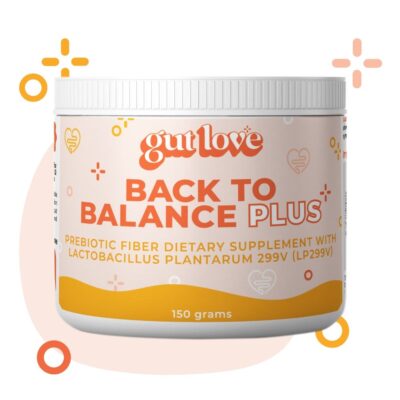Living with Ulcerative Colitis (UC) can be challenging, affecting not only your digestive system but also impacting various aspects of daily life. Add in fatigue with your ulcerative colitis and it can be exhausting!
Crohn’s Disease and ulcerative colitis are the two main forms of inflammatory bowel disease (IBD). Both types of IBD can lead to disruption of routines and a perpetual state of fatigue. Ulcerative Colitis primarily affects the colon and rectum. Its distinguishing factor from Crohn’s Disease is that it typically impacts only the innermost lining of the colon, whereas in Crohn’s, it can affect anywhere in the digestive tract and multiple layers of the intestine.
The persistent inflammation in UC can cause disruptions in bowel habits, abdominal pain, and discomfort. Beyond these physical symptoms, UC often brings about an overwhelming fatigue that affects daily routines and reduces energy levels.
In this post, I’ll delve into the concept of Ulcerative Colitis fatigue, shedding light on what it entails, why it occurs, and how you can manage it effectively to enhance your quality of life.
What is Ulcerative Colitis Fatigue?
Fatigue is more than feeling tired; it’s a pervasive feeling of exhaustion that interferes with daily activities and significantly impacts one’s quality of life. For individuals with UC, this fatigue is a common side effect, affecting up to 80% of people with active IBD.
It’s not merely a result of disrupted sleep patterns but can be attributed to multiple factors, including nutritional deficiencies (specifically B12 and folate deficiencies), red blood cell issues resulting in anemia, and chemical signals produced during inflammation.
Why Does Ulcerative Colitis Cause Fatigue
Fatigue in people with IBD is prominent. Here are some of the reasons why someone with UC may experience fatigue:
- Nutritional Deficiencies: UC can lead to malabsorption issues, causing deficiencies in essential nutrients like vitamin B12. This deficiency affects red blood cell production and can contribute to fatigue. Excess bleeding can also contribute to iron deficiencies which also contribute to fatigue.
- Inflammatory Signals: Chemical signals released during inflammation affect energy levels and contribute to the feeling of exhaustion in people with UC.
- Impact on Red Blood Cells: The inflammation and active disease process can interfere with the body’s ability to produce healthy red blood cells, further exacerbating fatigue in individuals with UC.
- Poor oral intake: A decrease in food intake is the main reason someone with IBD becomes malnourished (1). Those with IBD often avoid food in hopes to avoid symptoms which leads to decreased oral intake and fatigue. Poor intake can also be related to decreased appetite signaling.
Ulcerative Colitis Fatigue Treatment
Managing UC-related fatigue involves addressing the underlying causes and adopting strategies to alleviate its impact. Here are some options to consider:
- Nutritional Supplements: Supplementing with iron, vitamin B12 and folate can help correct deficiencies and improve energy levels.
- Medication Management: Working closely with a healthcare provider to manage UC symptoms through appropriate medications can help reduce fatigue.
- Lifestyle Changes: Prioritizing adequate rest, regular exercise, stress management, and a well-balanced diet can significantly improve energy levels and overall well-being for individuals with UC.
- Dietitian referral: Scheduling an appointment with a dietitian can be helpful to ensure fatigue experienced is mitigated by adequate food intake. Carbohydrates, protein, fat, electrolytes, and fluid intake are helpful to fight fatigue. Dietitians are trained to complete nutrition focused physical exams to assess nutrient status and support you through nutrient deficiencies with appropriate dosing of supplements if needed.
Find more ways to fight fatigue here.
Note: always contact your healthcare provider to see if supplementation and/or medication changes are appropriate for you.
Conclusion
Fatigue in people with Ulcerative Colitis is a significant concern that affects their daily lives and quality of life. Understanding its causes and implementing effective disease management strategies, including proper nutrition, medication, and lifestyle adjustments, can help reduce its impact. Don’t hesitate to seek guidance and support from your healthcare team in management of UC fatigue.
It’s important to note that there is never one thing that contributes to UC fatigue. You are not alone in feeling this way either. It’s crucial to recognize that fatigue in individuals with UC is a multifaceted issue that demands a holistic approach to enhance well-being and mitigate its adverse effects.
If you would like further information on managing IBD fatigue, we have curated an ebook on ‘How to Improve Energy in IBD’ to chat about all things fatigue! Access it here to finally fight fatigue for good.
References
- Scaldaferri, F., Pizzoferrato, M., Lopetuso, L. R., Musca, T., Ingravalle, F., Sicignano, L. L., Mentella, M., Miggiano, G., Mele, M. C., Gaetani, E., Graziani, C., Petito, V., Cammarota, G., Marzetti, E., Martone, A., Landi, F., & Gasbarrini, A. (2017). Nutrition and IBD: Malnutrition and/or sarcopenia? A practical guide. Gastroenterology Research and Practice, 2017, 1–11. https://doi.org/10.1155/2017/8646495







0 Comments
Trackbacks/Pingbacks